Urdu short stories being written sans critical review
Just in the past one year, 102 people have written and published a short story in Urdu: Hameed Shahid
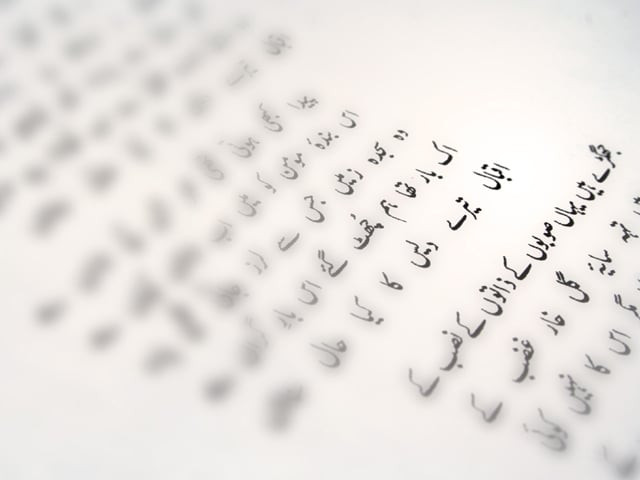
Just in the past one year, 102 people have written and published a short story in Urdu: Hameed Shahid
If someone thinks Urdu short stories are a thing of the past when writers such as Manto, Bedi, Krishan Chandar and Ismat Chughtai ruled supreme, they are mistaken.
“Just in the past one year, 102 people have written and published a short story in Urdu,” Hameed Shahid said, during a session at the Islamabad Literary Festival which dealt with the current situation of Urdu short stories.
Shahid, a short-story writer himself, said the genre has strengthened with writers taking on present-day issues and even the readership of fiction, which had declined, has emerged again. But the basic issue is that no one is bothering to analyze new writing.
“The problem today is not that stories are not being written, the question is who is critically analysing them?” Shahid said. “Critics have become blind to the literature present all around them.”
Speakers attributed the decline in quality analysis and a lack of enthusiasm for fiction among young readers to the dearth of social sciences education.
Writer Asif Farrukhi, who moderated the session said Urdu teachers are unexcited about modern literature themselves.
“They are teaching some classical texts but modern fiction has yet to make inroads into the curriculum,” Farrukhi told The Express Tribune after the session. “We cannot ignore contemporary literature and expect the younger generation to take interest in reading.”
Aamer Hussein, the other panellist said, “We have enough in the canon of Urdu literature to keep us going for at least one generation.”

New voices in Urdu short story
At another morning session, three writers who were representing the new generation of Urdu short-story writers supported Hameed’s point about the frequency of new writing. Nilofar Iqbal, Asim Butt and Mubashir Zaidi read short stories from their respective collections. The session was moderated by Ziaul Hassan.
While Butt’s short story dealt with a broken man’s pursuit for meaning in a world that is equally suffering, Iqbal read a story from her series “Operation Mice” — a set of stories that interpret the 21st century wars fought by the US from the perspective of an American family.
In her story, Iqbal combined journalistic snippets about the Iraq war, pop culture references and descriptions of the American way of life with a dialogue between her main characters — a soft-hearted but determined US commander, General Mercy, and his wife, Martha — to condemn war and America’s imperialistic ambitions as well as to explore the emotional cost of war borne by US families.
Iqbal said she was aware she would be sacrificing some literary value when she began writing the series, which is published in her book “Surkh Dhabbay.” But a writer has to act as a historian as well, she said.
Butt said he tries to depict the crisis-like conditions in which modern humans are living. “Today’s human traded village life for cities to get rid of her loneliness but instead she was stuck with a new kind of loneliness that is even devoid of nature and beauty.”
Published in The Express Tribune, May 2nd, 2013.


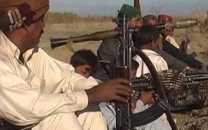
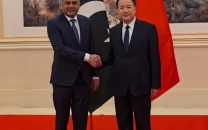
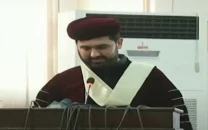

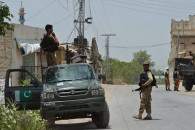





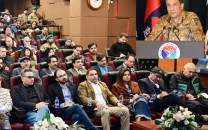






COMMENTS
Comments are moderated and generally will be posted if they are on-topic and not abusive.
For more information, please see our Comments FAQ